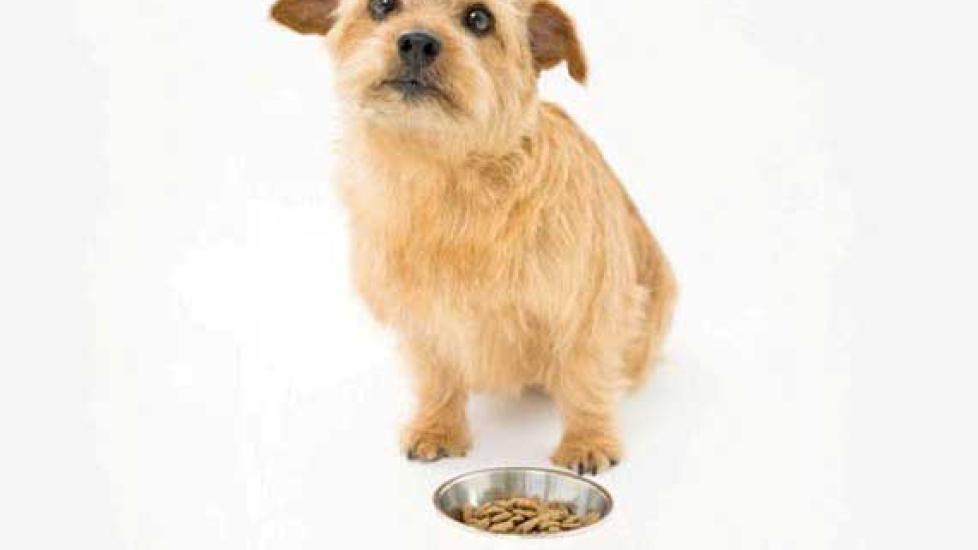Feeding the Dog that Vomits Every Day
We spend a lot of time on Nutrition Nuggets talking about what (and what not) to feed our dogs. When dogs have bilious vomiting syndrome, however, when meals occur is even more important than what the meals consist of.
The classic symptom of bilious vomiting syndrome is vomiting on an empty stomach. This usually occurs first thing in the morning since most dogs don’t eat throughout the night. Because the dog’s stomach is empty, all that comes up is fluid, mucus, and often some bile, which tinges everything an orangey-brown color. Dogs with bilious vomiting syndrome are normal in all other respects … no diarrhea, weight loss, poor appetite, etc.
We don’t know exactly why some dogs develop bilious vomiting syndrome. The most commonly cited theory is that something is amiss with the normal “housekeeping” contractions of the gastrointestinal tract that should occur in between meals. As a result, fluid within the first part of the intestinal tract (the duodenum) moves backwards into the stomach resulting in irritation of the stomach’s lining and vomiting. This explanation has resulted in some veterinarians calling the condition reflux gastritis.
Whatever the underlying cause, most dogs with bilious vomiting syndrome respond very well to a simple form of treatment — feeding them their normal food right before bedtime and again first thing in the morning (yes, I mean even before you get a cup of coffee). I do not recommend changing the dog’s food at the same time as the feeding schedule is being modified. As a veterinarian, I prefer to change one thing at a time whenever possible so I can better assess what is working and what is not.
If feeding the dog late in the evening and early in the morning doesn’t improve matters, I’ll generally recommend a health work up that consists of blood work, a urinalysis, a fecal examination, and abdominal X-rays to make sure that the dog is truly as healthy as he or she appears to be. In some cases, additional laboratory testing, an abdominal ultrasound, and/or scoping of the GI tract may be in order.
When a dog that is suspected of having bilious vomiting syndrome doesn’t get better with more frequent feedings alone and other causes of chronic vomiting have been ruled out, medications can be added to the treatment plan. Some dogs respond to drugs that reduce gastric acidity (e.g., famotidine or omeprazole) while others do better with metoclopramide, a medication that increases the frequency of contractions within the small intestines, or maropitant, a broad spectrum anti-vomiting drug.
Even when dogs with bilious vomiting syndrome are treated with medications, they should continue to eat a late evening and early morning meal. If this is inconvenient, an automatic feeder is a worthwhile investment.

Dr. Jennifer Coates
Image: violetblue / Shutterstock
